Changing Britain (1760-1900)
Health and housing
The population of Great Britain increased rapidly during the 1800s, with cities like London seeing a sharp rise in the number of people living there. The rapid growth was accompanied by overcrowding and associated medical issues.
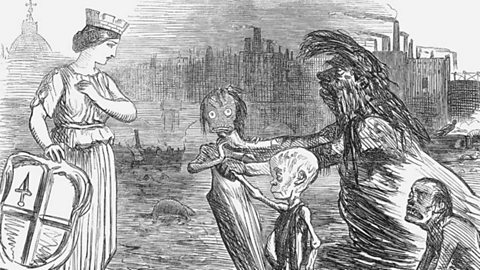
Industry â textile factories and coal mines
The shift from working at home to working in factories in the early 18th century brought with it a new system of working. Long working hours, fines and low wages were rife in the workplace.
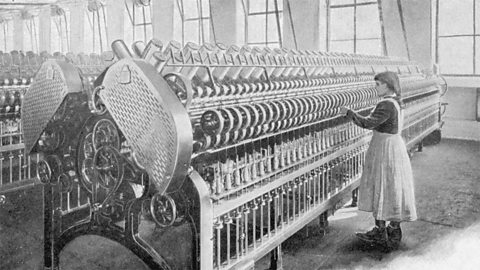
Transport â canals and railways
Between 1830-1880, transport in Britain was transformed by the building of a huge railway network. The railways were needed for the transport of raw materials and manufactured goods. Railways brought changes to industry, society and politics.
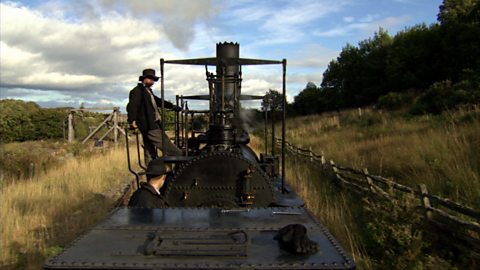
Pressure for democratic reform up to 1884
There was growing discontent among the working-class population in Britain during the 1830s. The electoral system was corrupt and unrepresentative, and the poor had to endure harsh working conditions with low pay.
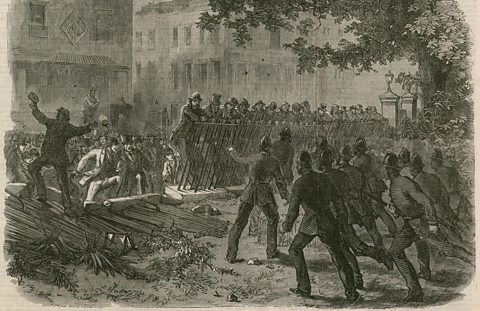
Video playlist
Manchester cholera epidemic of 1832 (pt 2/2) Video
The impact of poor quality housing in Britain on the spread of cholera.

Health and housing in the 19th century. Video
A report on the dire health of the working poor in some 19th century cities.
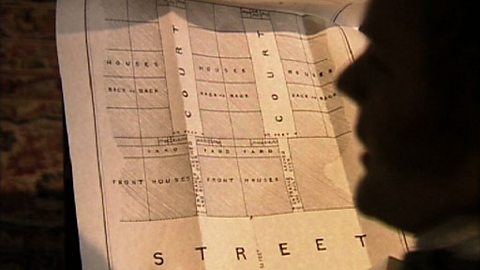
Manchester cholera epidemic of 1832 (pt 1/2) Video
A dramatisation of the outbreak of cholera in Manchester in 1832.

Links
- External linkExternal link
- External linkExternal link
- External linkExternal link
- External linkExternal link